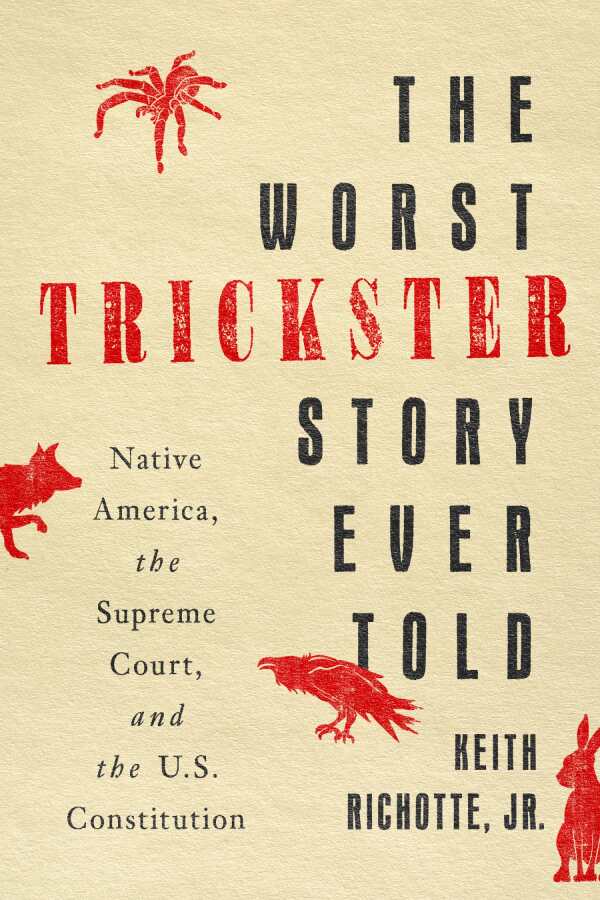The Worst Trickster Story Ever Told
Native America, the Supreme Court, and the U.S. Constitution
In The Worst Trickster Story Ever Told, Keith Richotte Jr. examines the legal history behind the federal government’s assertions of authority over almost six hundred tribal nations.
This book exposes the fascinating, paradoxical way in which the the United States asserted limitless authority over once sovereign Native American nations. Its investigation begins in the early 1880s, examining court cases involving tribal conflicts that were brought before the Supreme Court. The court used them as opportunities to exert power over Native American tribes, which the justices often considered wards of the state in need of oversight. Such racist arguments also fed into Supreme Court rationales for plenary power, which drew upon the US Constitution too.
Throughout, the book balances edification with good humor, even poking fun at its own length. In addition to its thorough legal history, which is supported by copious, often witty footnotes, it examines Native American trickster stories in which sly supernatural beings intrude, resulting in moral and educational lessons, as they relate to the plenary power paradox. Indeed, an original trickster story frames much of the book’s work: In it, a pale man (his name a string of references to colonization movements and leaders) stumbles upon a fireside party and begins to assume power over its attendees, growing in size and taking up space as he speaks—even asserting “I discovered this place.” This startling conceit complements the book’s observations about the bizarre arguments made to support the subjugation of tribal nations—and its ultimate recommendation: “Advocates and courts should confront exercises of federal authority … with consent as the central tool of their analysis.”
An illustrative legal history, The Worst Trickster Story Ever Told is about deceptive federal government efforts to amass limitless power over Native Americans.
Reviewed by
John M. Murray
Disclosure: This article is not an endorsement, but a review. The publisher of this book provided free copies of the book to have their book reviewed by a professional reviewer. No fee was paid by the publisher for this review. Foreword Reviews only recommends books that we love. Foreword Magazine, Inc. is disclosing this in accordance with the Federal Trade Commission’s 16 CFR, Part 255.

